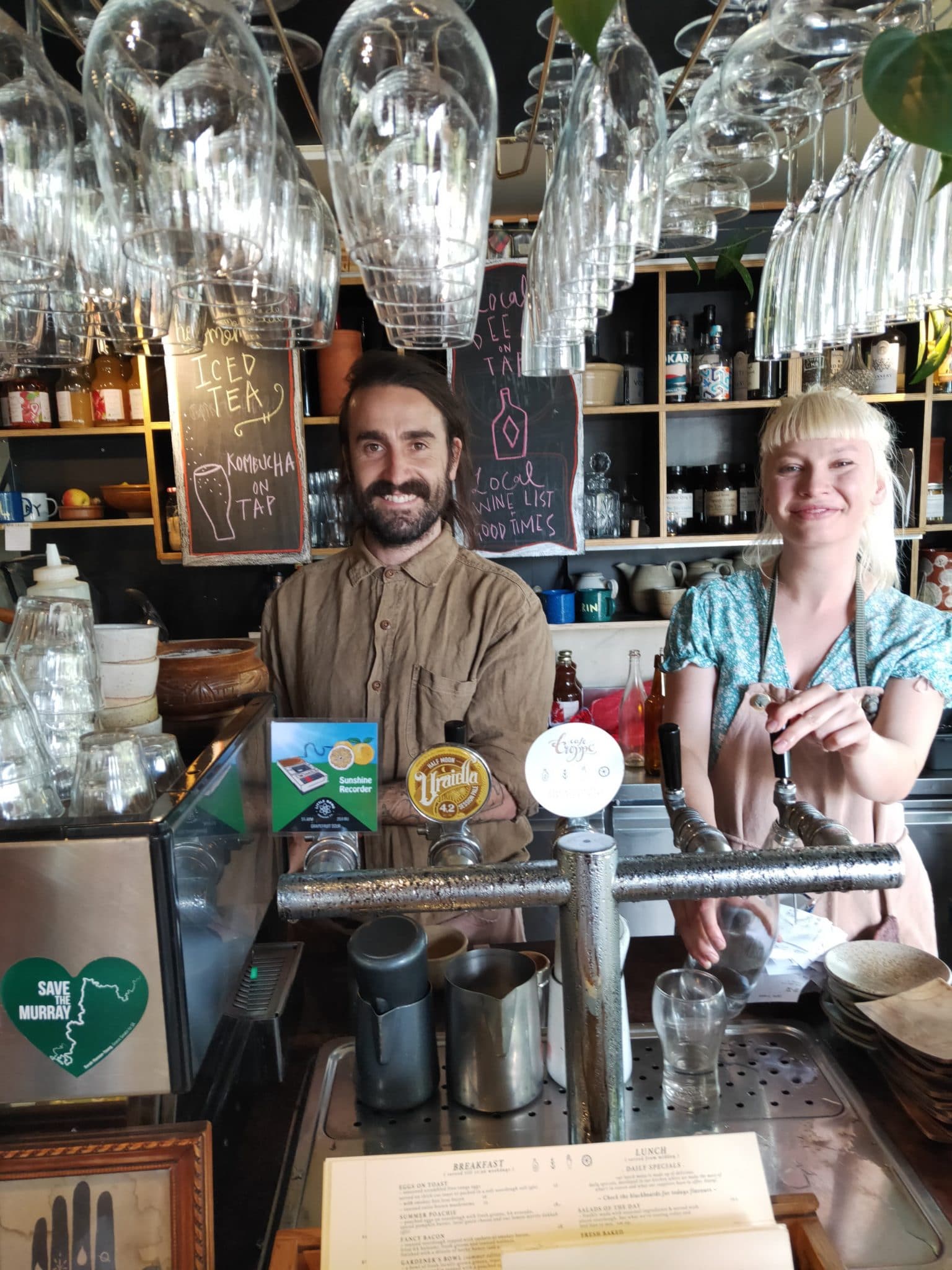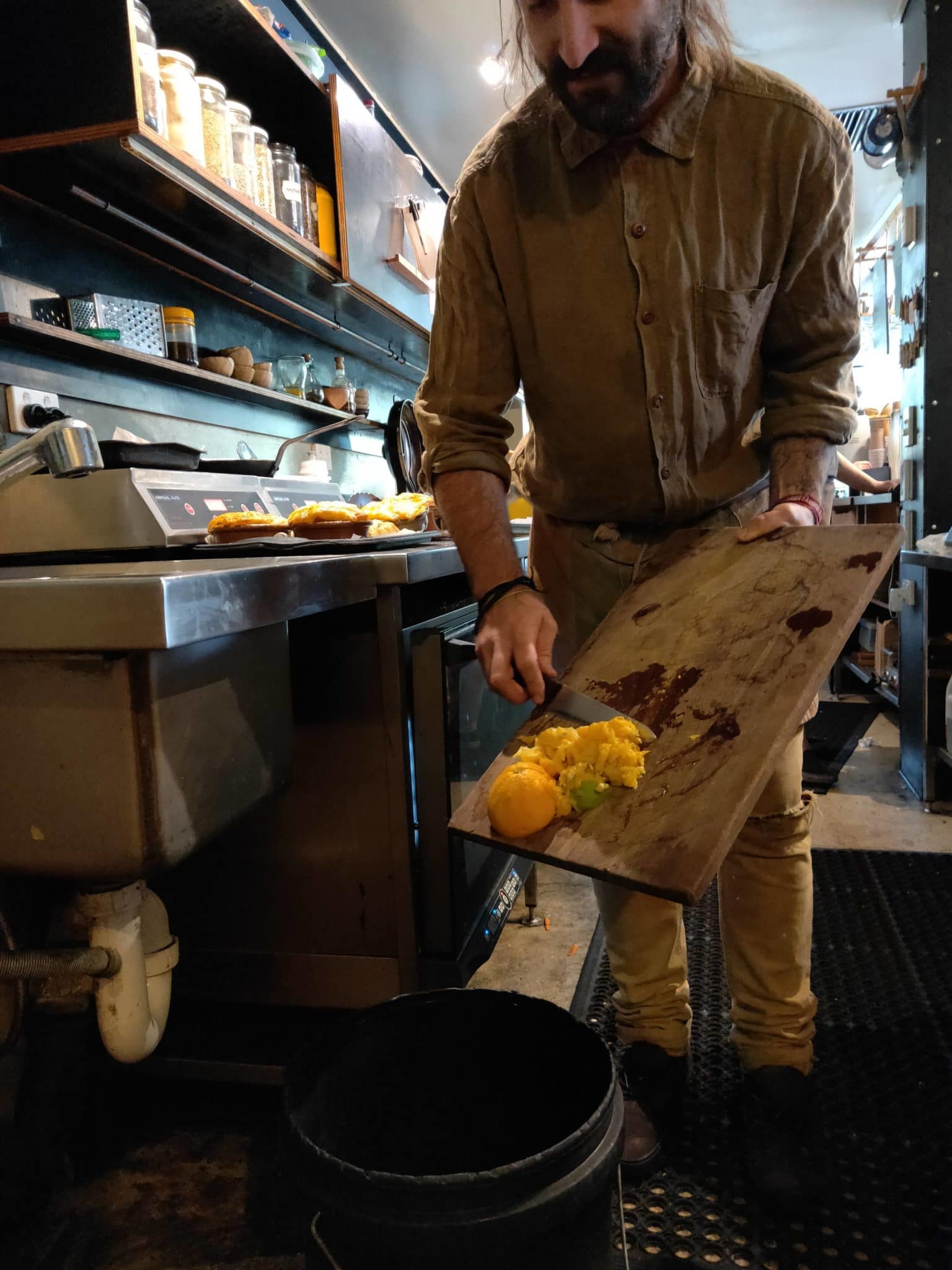No products in the cart yet. Keep shopping.
Gold Star Recyclers – Vilis Family Bakery
Vili's Family Bakery - Gold Star Recycler “I hate waste!” Vili Milisits, South Australian entrepreneur and owner of the iconic Vili’s Bakery, is...

Café Troppo on Whitmore Square is a café which set the standard for sustainability when they opened seven years ago and continues to be environmental innovators today. With lots of cafés now claiming to be green we set out to discover what it is that puts Café Troppo amongst the best of the best.
Right from the start owners Alex Harris and his sister, Maddie, followed a deliberate strategy to create a sustainable café. This ethos made it easy to make considered and deliberate decisions about every element of their supply chain and to build their business sustainably from the ground up.
This focus on sustainability and putting the environmental impact as a priority in decision making has come hand in hand with a deserved reputation for serving exceptional food, drinks and coffee.

Within this context managing waste is a significant part of the business. Café Troppo’s first step is to avoid waste whenever possible. They negotiated with suppliers of fresh produce to use reusable boxes, they buy local avoiding wasted food miles and they source separate all their recycling including soft plastics. This dedicated approach means their general rubbish compiles less than 1/10th of their waste collection
His waste partner, Cleanaway, and Jeffries Compost Service provide a complete compost service taking all the organic waste from food scraps, compostable cups, serviettes and paper towel. The fact that Jeffries can take all food and that the product is high quality compost used in the horticultural sector in South Australia sits very nicely with Café Troppo’s commitment to the circular economy.
I asked Alex if it was challenging to implement a source separation model of waste management to be met with a look of complete bafflement! “There is nothing difficult about this. It is just a matter of deciding to do it.”

Vili's Family Bakery - Gold Star Recycler “I hate waste!” Vili Milisits, South Australian entrepreneur and owner of the iconic Vili’s Bakery, is...
Jeffries CulChar is the perfect organic fertiliser for garden beds, lawns and native plants: with the added benefits of our secret ingredient.
Jeffries latest innovation, Jeffries CulChar, is a complete, certified organic, slow-release fertiliser, including essential trace elements and minerals. The inclusion of Jeffries BioChar works together with the organic carbon of the included compost as a long-term soil conditioner. Jeffries CulChar is a very complete and cost-effective nutritional offer that is safe to use in direct contact with plants and their root systems.
Let’s take a closer look at how Jeffries CulChar works and compare how it performs next to other organic fertiliser alternatives.
There’s no denying that Jeffries Organic Compost is a useful soil amendment. Among its many benefits, it improves aggregate formation, porosity,...